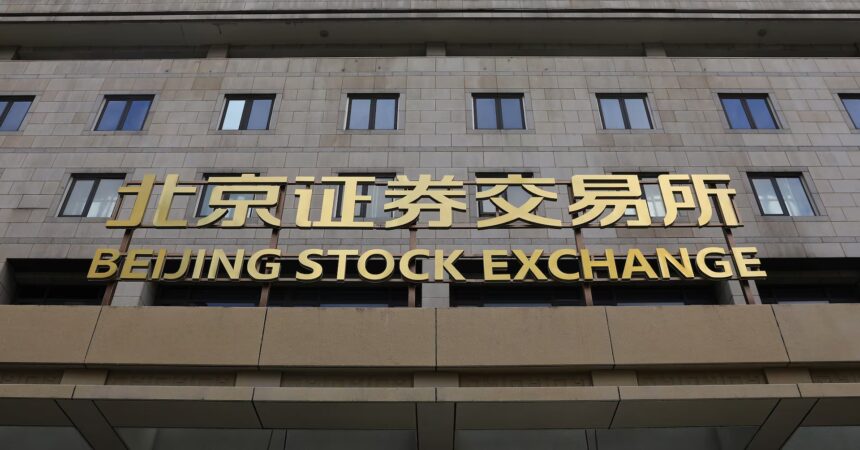China’s stock market is poised for a potential decline on Monday as renewed tensions in the trade war between the United States and China dampen risk appetite and trigger profit-taking among investors. This comes at a time when the market is nearing its highest levels in a decade.
Despite rising concerns, analysts predict that the impact of the sell-off will be less severe compared to the panic experienced in April when U.S. President Donald Trump initiated a global tariff war. The anticipation of rising bond prices is also notable, indicating a shift in investor sentiment.
Trump recently announced a series of new levies, including a staggering 100% tariff on U.S.-bound exports from China, along with stringent export controls on critical software set to take effect by November 1. This action was framed as retaliation against China, which has restricted its exports of rare earth materials. The announcement came post the close of Asian markets and led to significant declines across U.S. and European markets, with the Nasdaq-indexed Chinese stocks plunging by 6% and the KraneShares CSI China Internet ETF dropping by 7%.
In light of the current market dynamics, hedge fund manager Wang Yapei from Shanghai expressed that the renewed trade tensions are likely to have a short-term impact on China’s stock market. However, he holds a more optimistic view on the outcome of negotiations, stressing that “the cost of large-scale conflict is too high for both powers.” There are also expectations that Beijing will provide policy support to stabilize market sentiment, alongside hopes that Trump may adopt a less aggressive stance.
On Sunday, China criticized Trump’s tariffs as hypocritical and defended its restrictions on rare earth exports, yet refrained from imposing new tariffs on American goods. Charles Wang, chairman of Shenzhen Dragon Pacific Capital Management, highlighted that the rising geopolitical uncertainty could prompt further easing of monetary policy in China, which might be beneficial for the stock market.
He noted that any market correction could present buying opportunities, especially for tech stocks, as Beijing intensifies its push for self-sufficiency amid perceived threats of a technological rift with the U.S. Investors are reportedly encouraged by China’s proactive approach in managing rare earth exports to fortify its advantage before the U.S. can fully develop alternative supply chains.
Analysts from China Merchants Securities mentioned that ongoing geopolitical tensions could favor sectors such as artificial intelligence, robotics, defense, innovative pharmaceuticals, and chipmaking. Any market correction is viewed as a potential advantage for long-term investors looking to enter the market at reduced prices.
Conversely, sectors heavily reliant on exports, including electric motors and machinery, could suffer significantly from Trump’s proposed tariff increases. Xiangcai Securities warned that such measures could eradicate profits for most Chinese exporters. Despite this grim forecast, many analysts believe that the likelihood of implementing the full-scale 100% tariff is low, suggesting that Trump’s tactics may be more about applying pressure to gain leverage in negotiations.
Lu Ting, Nomura’s Chief China Economist, articulated that while economic and trade tensions between the two superpowers are set to continue, both nations remain dependent on each other in the near term. He expressed a strong possibility of an in-person meeting between Xi and Trump at the upcoming APEC summit in South Korea later this month, highlighting the potential for negotiation and resolution amid rising tensions.





